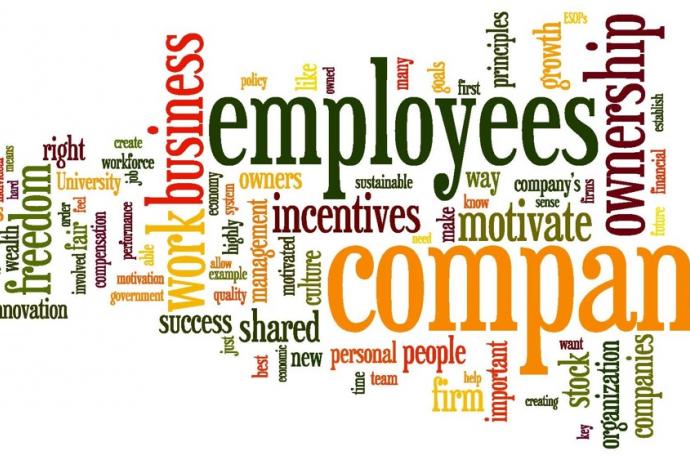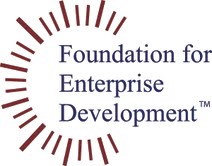Creating Wealth by Sharing Wealth
Foundation For Enterprise Development Selects National Essay Contest Winners
Published 03-31-11
Submitted by The Foundation for Enterprise Development

The Foundation for Enterprise Development (FED) today announced that judges have selected the winners of its national essay contest - Creating Wealth by Sharing Wealth. The FED sponsored the first-ever multi-university essay contest to catalyze college students' thinking on business principles and strategies required for the future success of our economy.
More than 430 college students participated in the contest, representing 18 U.S. universities in 14 states across the country. Students were asked to describe their strategies and practices for increasing employee motivation and participation in enterprise growth, creating innovative and productive firms, and establishing more fair and sustainable economies in the 21st Century through broad-based employee ownership and profit sharing in the corporation.
"Their words are strikingly honest, express hope, present emergent ideas for improving our economic system, and demonstrate conviction of their beliefs," said Mary Ann Beyster, president of the FED. "Students across the nation not only get it, but will lead the way in establishing new cooperative and innovative models of the modern corporation based on more people winning, rather than a few."
Below are some highlights from the winning essays. Complete essays from all national winners are available at: www.fed.org/education-essay-contest.
Students convey insights on effective corporate leadership:
"The difference will not be in the quality or novelty of the product I sell, or the service my company offers, but in the commitment, motivation, and empowerment of the people who do not work "for" but who work "with" me. I am calling it my "two cows and a cart" strategy."
- Terry Williamson, MBA Candidate, University of California, San Diego, Calif. 1st place National Winner
"If an organization can be thought of as a vehicle, the wheels are its people. They transform the motivational energy into directional purpose. They are the contact point between the organization and the outside world; however, in order to function properly, each wheel must be properly balanced, and all must be set in the same direction, with very little margin for error."
- Douglas Ashburn, MBA Candidate, Illinois Institute of Technology, Chicago, Ill. 2nd place National Winner
"People want to be a part of something great. Great ideas come from people with the incentive and freedom to explore; and in that respect business is no different than any other discipline."
- Scotty McWilliams, BBA Candidate, Finance and Economics, LaMar University, Beaumont, Texas. 4th place National Winner
They articulate their assessments of corporate shortcomings:
"In the midst of our own Great Recession, what idea could be more powerful than a country in which we all own the future?...Employees are not commodities to be fired when the business does poorly and provided with disproportionally low compensation when the business does well, but are vested stakeholders who have a legitimate right to share power and responsibility."
- Tejdev Sandhu, MS Candidate, Accounting and Information Systems, Virginia Tech Best in class
They argue for government economic policies and programs consistent with America's constitution that states its intent to "promote the general welfare:"
"For the proponents of greater social equality it [employee ownership] enables the workers to own the enterprise and means of production, and for the adherents of Adam Smith's principles of economics, it operates within the boundaries of the free market under the premise of self-interested competition, increasing productivity and the effectiveness of the workforce."
- Alexandr Bolgari, BA Candidate, International Relations, Kent State University, Kent, Ohio 3rd place National Winner
Professors at participating universities submitted the highest evaluated essays and the FED's prestigious panel of judges, representing a spectrum of business and academic leaders, chose four national awardees. Graduate and undergraduate students participated from diverse disciplines including business administration, engineering, social science and information technology.
The website http://www.fed.org/education-essay-contest has a listing of students whose essays were designated as winning, best-in-class or honorable mention, as well as students' LinkedIn information, if provided, for companies that wish to contact them. Student resumes are available upon request from the FED. Winners from the contest will be honored at industry events such as the National Center of Employee Ownership (NCEO) Annual Conference in Colorado and GEO's National Equity Compensation Forum in Arizona. In addition, the Employee Ownership Foundation (EOF) selected a top ESOP essay and has invited the winner to attend the ESOP Association's Annual Conference in Washington D.C.
About The Foundation for Enterprise Development (FED)
The Foundation for Enterprise Development (FED) was established in 1986 by Dr. J. Robert Beyster to promote the concept of broad-based, participative employee ownership and entrepreneurism. The FED funds inter-disciplinary research and curriculum development at business, engineering, and liberal arts schools. The FED also creates and engages in research and training programs that inspire innovation and entrepreneurship for solving problems of national and global importance. For more information, visit www.fed.org.

The Foundation for Enterprise Development
The Foundation for Enterprise Development
The Foundation for Enterprise Development (FED), established in 1986 by Dr. J.R. Beyster, is a non-profit foundation focused on helping the sustainability and growth of U.S.-based science and technology companies through its research, education, and services that advance innovation and broad-based ownership.
The FED strives to increase awareness of ownership and management principles among students, entrepreneurs, and business leaders through educational curricula. The FED also creates and engages in research and education programs that inspire innovation and entrepreneurship for solving problems of national and global importance.
The FED encourages entrepreneurs to foster a culture of innovation within their company and is also committed to fostering business principles that support the creation of an ownership culture with employees who grow the company. Our guiding principles include:
- Give employees the freedom to create the kind of business and environment they would be passionate to work in.
- Encourage entrepreneurship and superior performance, and give employees ownership of the organization and rewards commensurate with their contributions.
- Create an empowering culture where employees have a say in the policies and management of the company, know how the company makes money and is performing, and take actions for sustainable long-term and short-term performance.
The FED is working with universities across the nation and in particular we support the Beyster Institute at University of California San Diego, which is teaching graduate-level courses, conducting webinars, running the leading national employee ownership conference, presenting at numerous conferences, and consulting directly with more than 100 companies on employee ownership. We also collaborate with Rutgers University, a leading research university in employee ownership and administrator of an international fellowship program on employee ownership.

